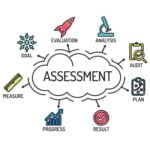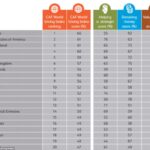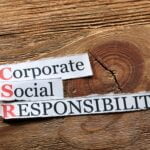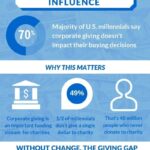In the rapidly evolving environment surrounding COVID-19, companies are being pushed into thinking about conducting business in ways they have never had to consider before. From the way they structure physical workplaces to how companies market their products and services, it is a particularly unusual time for companies.
To that end, we’ve received a number of inquiries from the corporate social responsibility community about recommendations we have for CSR managers relevant to current events. Our recommendations are particularly geared for both strategists and tacticians that work in corporate social responsibility, sustainability, corporate citizenship, and culture management roles.
Here we go, Encast’s Top 3 CSR Mistakes to Avoid During a Recession:
Going Dark & Not Communicating w/Key Stakeholders
One of the biggest mistakes CSR professionals can make is completely going dark. We also call this the “wait and see” mindset – the de facto approach many are taking to cope with the stress created by the pandemic. A large number of CSR professionals, as well as professionals from other functions, are taking this approach and as a result, haven’t been communicating with their key internal and external stakeholders. This is a big mistake. Companies are not defined by how they manage key departments, such as CSR, in good times. Rather, they are measure by how they manage their key initiatives during bad times. As such, if a company chooses to disengage with employees, customers, suppliers, NGOs, etc. during challenging times, the company will be be remembered in that way. OurIn our work with advice to corporate clients: publish an updated CSR strategy mandate to internal and external stakeholders immediately. Let them know the continued benefits CSR has to brand awareness, employee affinity, and community relations. When everyone else is slowing down, be remarkable: speed up.
Scaling back Without Considering Materiality
Perhaps one of the most surprising things we’ve found over the past few months is the dramatic number of companies that are thoughtlessly scaling back their CSR efforts. This is another, very big mistake. For most companies, active CSR programs are the result of comprehensive materiality assessments, which prioritize the programs that have the best of both worlds: high impact to stakeholders and on the business. What does this mean in the context of covid-19? This means that companies that are scaling back all or most of their CSR programs will also suffer the attributed business impact of those CSR programs in the form of decreased employee, customer, and supplier engagement. We are now in a recession, making it more important than ever for companies to maximize initiatives that have and will continue delivering business value. This is why scaling back CSR programs can be devastating for a company’s balance sheet, especially if such programs have demonstrated material impact.
Launching New Programs That Lack Societal Context
Finally, we wanted to give a cautionary recommendation to those ambitious CSR professionals that are itching to get back into “business as usual.” Social media has taught the world a big lesson about social context and relevance. That is, if you try engaging on social media in ways that are not relevant to current events, engagement suffers. Conversely, attempting to engage on social media in ways that are relevant to current events, programs will experience an engaging, multiplicative. This axiom holds true for CSR. While companies may be tempted to highlight “business as usual” CSR programs that are unrelated to the current situation, this will undoubtedly result in reduced stakeholder engagement and business impact. Relevancy is paramount.
In summary, we strongly believe that communication with stakeholders, incorporating materiality into any discussion around scaling back, and a focus on prioritizing CSR programs with social relevance are key for CSR professionals seeking relevancy and breakthroughs in today’s chaotic environment.


































































































































